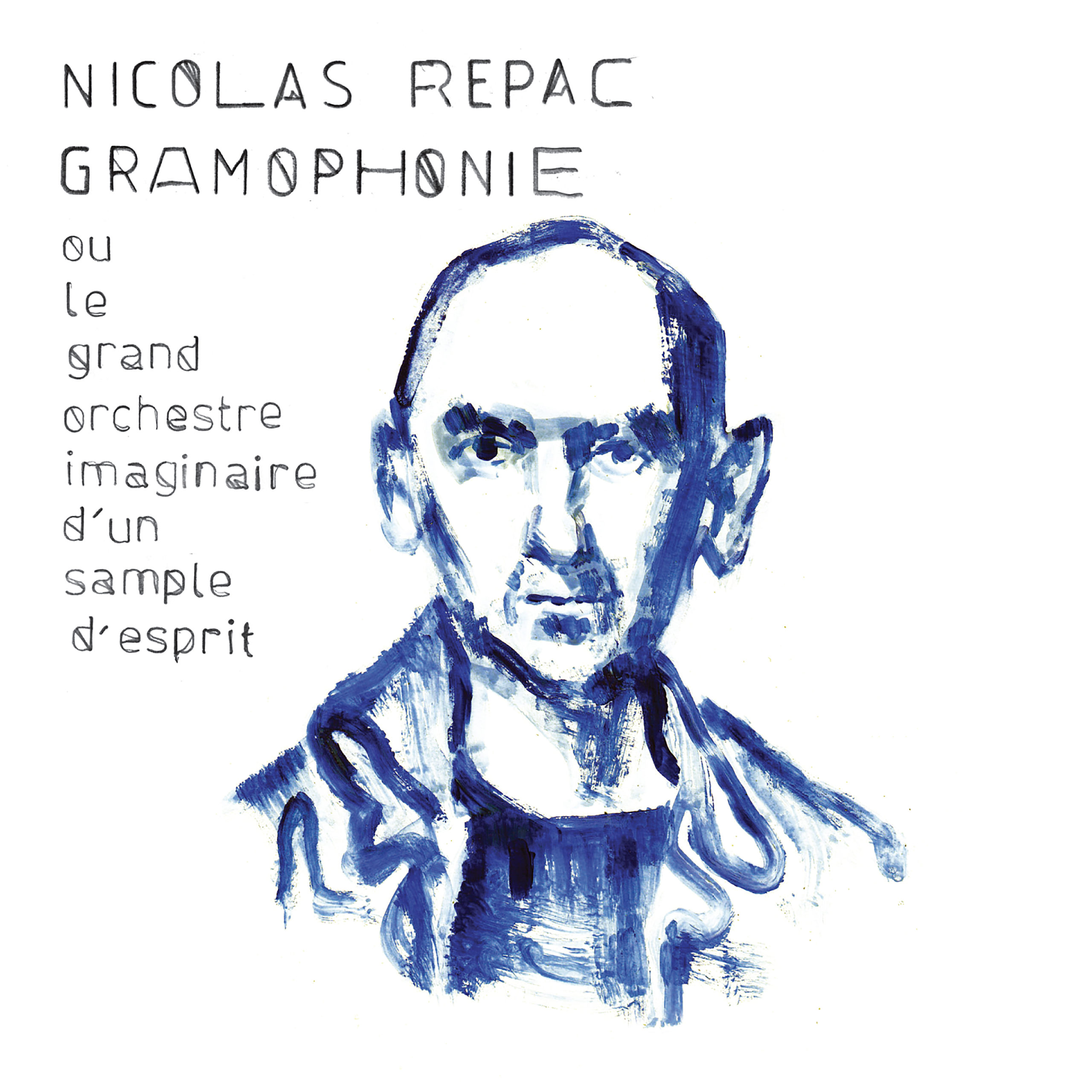
Gramophonie
—
Out September 13, 2024
—
Nø Førmat!



In 2004, Nicolas Repac’s album Swing Swing was one of the few references to mark the birth of the Nø Førmat! label. Already well known in the music world for his artistic collaboration with Arthur H, but also for having published a highly personal album of nocturnal, dreamlike atmospheres as a singer-songwriter (La Vile), Nicolas Repac’s electro-ludic ramblings on the jazz of the big swing bands of the 1930s revealed a wild, instinctive, poetic ‘art of the sample’.
Twenty years on, Nicolas Repac has not only established himself as an inventive producer and arranger, continuing his long-term partnership with Arthur H while engaging in inspired collaborations with many artists on the African scene (Mamani Keita, Abou Diarra, Dobet Gnahoré), but, applying and refining the compositional techniques he experimented with in Swing Swing to the worlds of blues (Black Box) and ethnomusicological recordings (Rhapsodic), as one of the most original creators in the small world of contemporary European electronic music.
To mark its 20th anniversary, the Nø Førmat! label asked this long-standing companion to delve back into the outdated, modernist imaginary of jazz in the Roaring Twenties, to add a volume to his cycle of sound tableaux by imagining a sort of sequel to Swing Swing. While a handful of rhythmically intoxicating tracks recapture the formal cock-and-bull spirit that gave Swing Swing its joyously surrealist general tone (‘Harlem’, ‘Scatastrophes’ and ‘Swingphony’), in Gramophonie Nicolas Repac considerably expands his idiomatic and emotional territories, gently drifting the overall mood of the album towards the intimate and the melancholy. With a virtuoso technicality that never sacrifices creative spontaneity to the mirages of control and ‘know-how’, he uses his machines less like an engineer than a poet, plunging into the heart of his unconscious to bring back, like a daydream notebook, a series of tracks full of free associations unfolding their hybrid, vaporous and deliberately cinematic forms, like so many cryptic and enigmatic confidences. Reworking his samples with maniacal meticulousness until he extracts a form of poetic quintessence in the manner of a pataphysical alchemist, Nicolas Repac conjures up the ghosts of a bygone world to better evoke our present – resonating in ‘Moulin bleu’ or ‘Nuit noire Place Blanche’, the false insouciance of Paris a century ago with our most contemporary states of mind. In the end, there is a not inconsiderable autobiographical element in Gramophonie, which, throughout, weaves melancholy into most of the tracks, no matter how frenetically frenzied they may seem… And when Nicolas Repac suddenly conjures up the tired voice of his mother singing ‘Pleure pas Nelly’, as if extracted from a family document, wrapping it in a light veil of deeply moving strings, the raw emotion that grips the listener perhaps touches the secret heart of this eminently personal album.
Biographical details
Born on 11 December 1964 in Albi, Nicolas Repac began his musical career as a self-taught musician, trying to reproduce the hits of Bob Dylan and Tom Waits by ear on the guitar, before finally composing his first songs and opening up to jazz and improvisation. Moving to Paris at the age of 23 to become a jazz guitarist, he bought his first synthesizers and drum machines and began to create music using machines and sequencers, soon adding the computer and the sampler to his palette, a major instrument from which he gradually laid the foundations of his own universe. His many collaborations led to a meeting with singer/songwriter Arthur H, whom he helped to produce the album Trouble-fête, marking the start of a collaboration that is still going strong over a quarter of a century later.
He also embarked on a solo career, signing a collection of urban and lyrical songs, La Vile, for Label Bleu. Voted ‘best male hopeful’ at the Francofolies festival in 1999, he developed his activities as a producer and arranger (Maurane, Alain Bashung…) and recorded Swing Swing in 2004 for the fledgling Nø Førmat! label, a mischievous and playful electro ramble around the jazz of the 30s. The record’s success opened up new horizons, including a collaboration with Malian singer Mamani Keita, also for Nø Førmat! which led to two albums (Yelema and Gagner l’argent français) mixing jazz, rock, dub, Mandingo music and electro.
In 2007 Nicolas Repac released a new album of songs, La grande roue, while continuing his activities as a producer, and signed several scores for the cinema, including 21 nuits avec Pattie by the Larrieu brothers in 2015, Les enfants du 209 rue Saint-Maur, Paris 10e by Ruth Zilberman, and Le poulain by Mathieu Sapin in 2018, and Le fils de l’épicière, le maire, le village et le monde by Claire Simon in 2020.
In keeping with the spirit and aesthetic of Swing Swing, in 2012 he produced Black Box, a retro-futuristic reverie about the blues, and in 2021 he published Rhapsodic, based on sound documents drawn from the treasures of ethnomusicologist Charles Duvelle’s ‘Prophet’ collection.